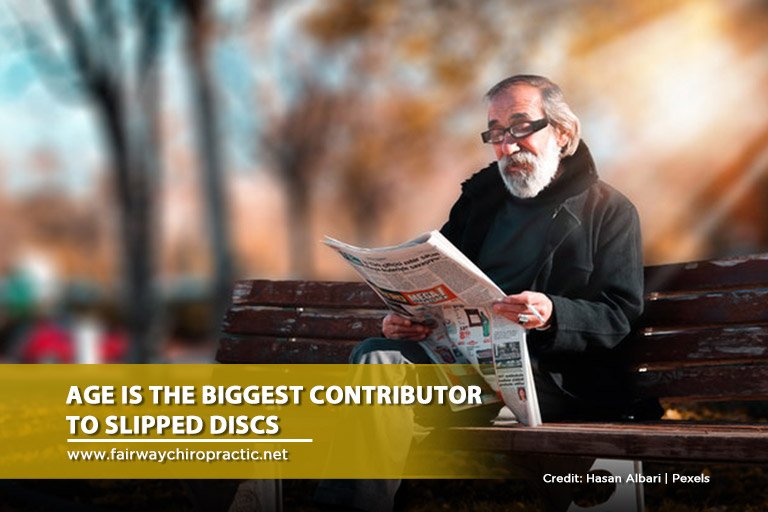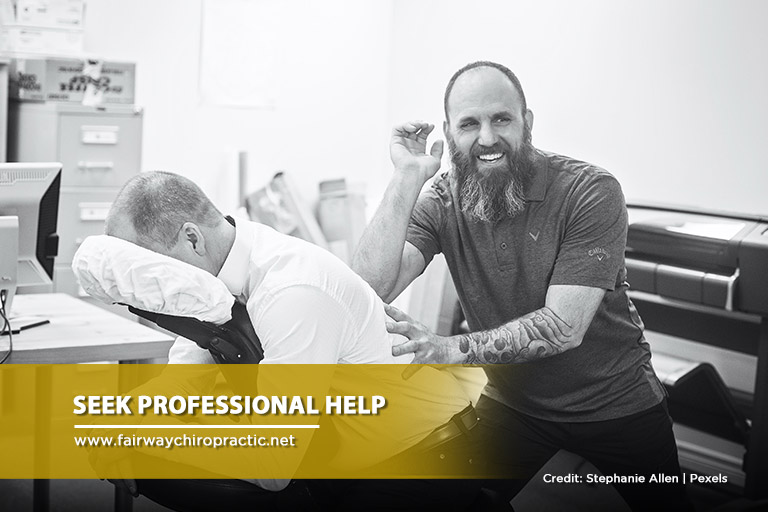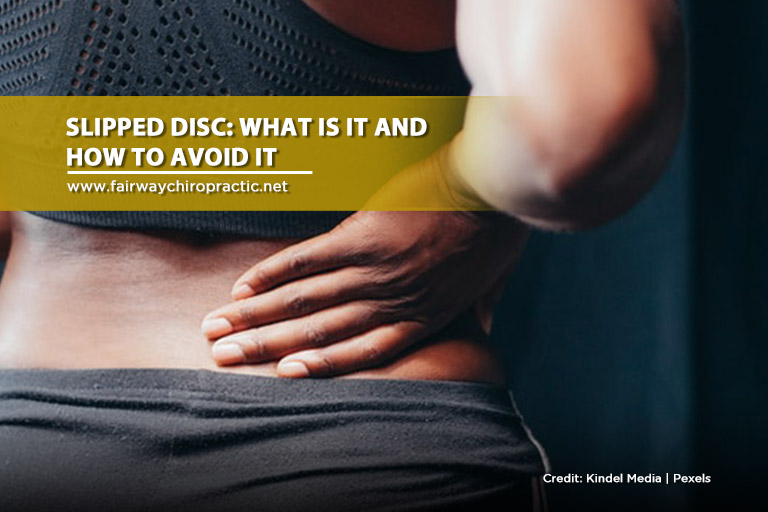Slipped discs, or herniated discs, occur in 2% of people annually. For people aged 30 to 50, this is one of the leading causes of back pain. What is it exactly and how do you avoid it?
What Is a Slipped Disc?
Your spine is made up of a series of bones. All of these bones are cushioned by what are known as discs. Walking, jogging, twisting, and lifting are all actions that cause stress and impact these discs. Their main purpose is to absorb the impact.
The disc is made up of two main components. The first is a gelatinous inner component, while the second is a tougher outer ring. When you get a slipped disc, it doesn’t truly “slip”; instead, it swells or splits. The disc ruptures and the jelly-like substance protrudes in severe cases. This jelly-like substance can also be detached completely from the disc and become lodged in the spinal canal, causing severe nerve compression.
How Do You Know It’s a Slipped Disc?
There are a variety of telltale indications and symptoms that indicate a slipped disc. If you think you might have it, make an appointment with your doctor as soon as possible. Below are some of the indications and symptoms to look for so you know if you might be experiencing slipped discs in the lower back.
- You’re suffering from lower back pain.
- There may be discomfort in the buttocks, legs, or hips. When the disc presses against the sciatic nerve, you’ll experience sciatica.
- You’re feeling muscle aches and pains.
- You have back problems when straightening and bending.
- You have neck pain.
- A tingling sensation can be felt in the legs, back, feet, arms, or feet.
It’s crucial to understand that just because you’re having these symptoms doesn’t guarantee you have a slipped disc. Back pain, for example, can be caused by virtually anything and is usually not something serious. Symptoms can also vary from person to person.
What Causes Slipped Discs to Happen?

A slipped disc can be caused by a variety of factors including:
- Age
Disc herniation is caused by a number of factors, including aging. The fluid capacity of the spinal discs naturally decreases as people age. The discs wear out as the fluid volume decreases, resulting in small tears and breaks that allow the gelatinous substance to pass through. According to studies, men are more likely than women to experience a slipped disc. However, as people age, their discs lose their protective wear, which is a significant cause of slipping discs.
- Overweight
Some persons who struggle with their weight are more likely to get a slipped disc at some point in their lives. The discs sometimes struggle to cope with the support because of the added weight.
- Sedentary Lifestyles
People are becoming more and more desk-bound, and many do not have time to be active. People who are sedentary are more likely to suffer a slipped disc. So doing some exercise in between is always a good idea.
- Trauma
Trauma is the second greatest cause of herniated discs, after ageing. It’s possible that you’re lifting something extremely heavy or that you’ve twisted your back incorrectly. Collisions, such as vehicle accidents or sudden falls, can result in slipping discs.
What’s the Next Step if You Have a Slipped Disc?
Slipped discs can heal on their own or be treated in a number of ways. Depending on the severity of your pain, your doctor will devise a treatment plan for you. Typically, most patients are scheduled with a physiotherapist who will propose an activity regimen tailored to their specific situation. When the pain is modest and not life-threatening, medications are used to relieve it while the patient waits for it to heal on its own.
There are surgical approaches also for more serious cases where the pain does not go away after more than 6 weeks. Some surgical treatments include laminectomies or spinal fusions.
How to Avoid a Slipped Disc
People can never truly foretell what will happen in their lives, and there are many things we cannot escape, such as the passage of time. These are all natural occurrences in life. So there’s no guarantee that there’s something you can do to avoid a slipped disc. There are, however, steps you can take to reduce your risks of contracting it.
- Practice proper lifting techniques
When lifting a heavy object, the most frequent posture is to simply bend from the waist and reach down to the level of the object and grab it. However, this is an extremely risky move. Bending at the waist is not a good idea. Instead, bend your knees and keep your back straight while supporting your weight with your leg muscles.
- Stretch and exercise regularly
If you spend the majority of your day at your desk, make sure to stretch every now and then. Make time for activities that assist strengthen your back and abdominal muscles so they can better support your spine if you have a regular workout program.
- Maintain a healthy weight
It puts a strain on your spine, especially the lower back if you gain too much weight. So always eat well. If you’re having problems, make an appointment with your doctor so that they can help you develop a healthy eating plan and check for any other underlying conditions.
- Stand or sit in the right posture
Your spine is well-balanced and protected from unwanted strain and weight if you adopt good posture. Always check your posture before doing anything, whether you’re standing, walking, sitting, or sprinting.

Always remember to pay attention to what your body is telling you. Never ignore the signs. If you think you could have a slipped disc, see your doctor right away for an examination. It’s always better to err on the side of caution than to take a chance.
If you’ve been diagnosed with a slipped disc, get in touch with Fairway Chiropractic. Our chiropractor and massage therapist in Kitchener or Waterloo are here to help you develop a treatment plan so you can recover faster. Contact us at 519-748-5535 or admin@fairwaychiropractic.com.











